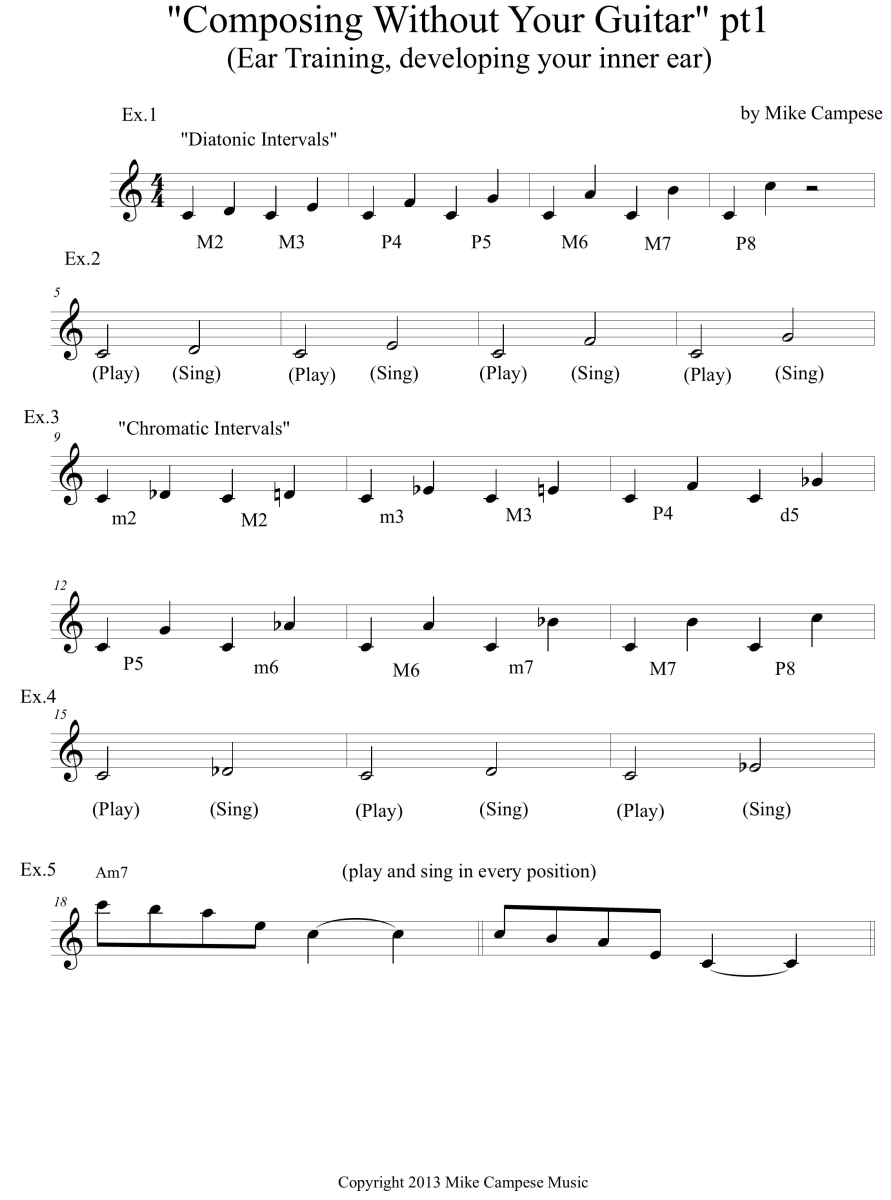Hello everyone! I'm writing this lesson on my flight to Italy and throughout my travels, where I will be doing my little guitar clinic tour and promoting my new CD, "Chameleon".
Being a musician that likes to travel and loves going to new places can be very inspiring. Hopefully, everything goes right and there are no major problems (well, there is usually something that happens).
For a long time now on my flights and in my travels, I have always composed music - cmplete songs to small ideas, patterns, etc. I normally use a laptop and a notation program to do this. Usually on a flight you can't pull a guitar out, which it is really tempting. But, the guitar doesn't produce the music, you do. The guitar is just a tool to use to express yourself and to help get your ideas across to your audience.
Sometimes when I want to generate new ideas, I may start with a scale or an arpeggio. If I want to incorporate a certain sound, or if I want to get better at using a certain scale, then I will only take those notes and work out many possible permutations and I will use different intervals to make up lines and patterns. These ideas will come in handy when you have your instrument with you and when you are working on your songs. You don't have to just do patterns, you can write melodies and complete songs. I have written complete tunes with just a laptop and a notation program.
Your ear is a very essential part when you are composing, it is very important to develop your ear. There are many different exercises you can do that will help develop you ear. Transcribing melodies and whole songs is a great way to develop your ear. Being able to identify diatonic and chromatic intervals, chords, scales and chord progressions is very important. You can get software programs that can help you with this or you can make up your own with your instrument.
This is not a ear training lesson, but I just want to touch on the subject and I will give you a few exercises that you can practice. In Example 1, I listed the diatonic intervals in C major in the first octave. For Example 2, I want you to play the first note on your instrument and sing the next one, follow this all the way up the scale. Be sure to check yourself with your instrument to see if you where correct. Overtime you won't need your instrument for this. Example 3, is all the chromatic intervals within the first octave. Now, do the same as in example 2 for these as well, play the first note then sing the next note. I strongly suggest that you sing or hum everything you play, this will help unlock the music that you hear in your head and it will help you improvise better. Take this simple melody in Example 5 and try to play and sing it in all positions on your instrument and in each octave. Be sure to play it off each left hand finger. If you want to get better at singing melodies, take any song that is written in notation and just play the first note and then sing the rest of it without playing. You can choose any starting pitch if you don't have your instrument with you. We will do more of this in a future lesson.
I have written many solos or ideas for solos in the car on long drives just by singing along to backing tracks of the tunes I was composing. I would have the progressions of the tune on a CD and play it over and over and I would sing melodies over it until I got something I liked. If you keep doing this you get better at it, just like anything else.
Also, visualization is really important as well for composing music. If you have a clear picture in your mind of what you want it will eventually happen and this can help you memorize scales and several techniques without even playing it. When I used to go bike riding I used to come up with a lot of great ideas. But wherever I go, I'm always thinking about music and I will have a mental picture of the fretboard.

OK, that is it for now! In my bext lesson I will give you a few lines from my latest CD, "Chameleon" that I wrote without my guitar. Be sure to check out the new CD and visit mikecampese.com.
Mike Campese is an all-around music performer, session artist and teacher competent in many musical styles, electric and acoustic. He has studied at G.I.T. (Honors Graduate), and with Paul Gilbert, Norman Brown, Stanley Jordan, Scott Henderson and Keith Wyatt.